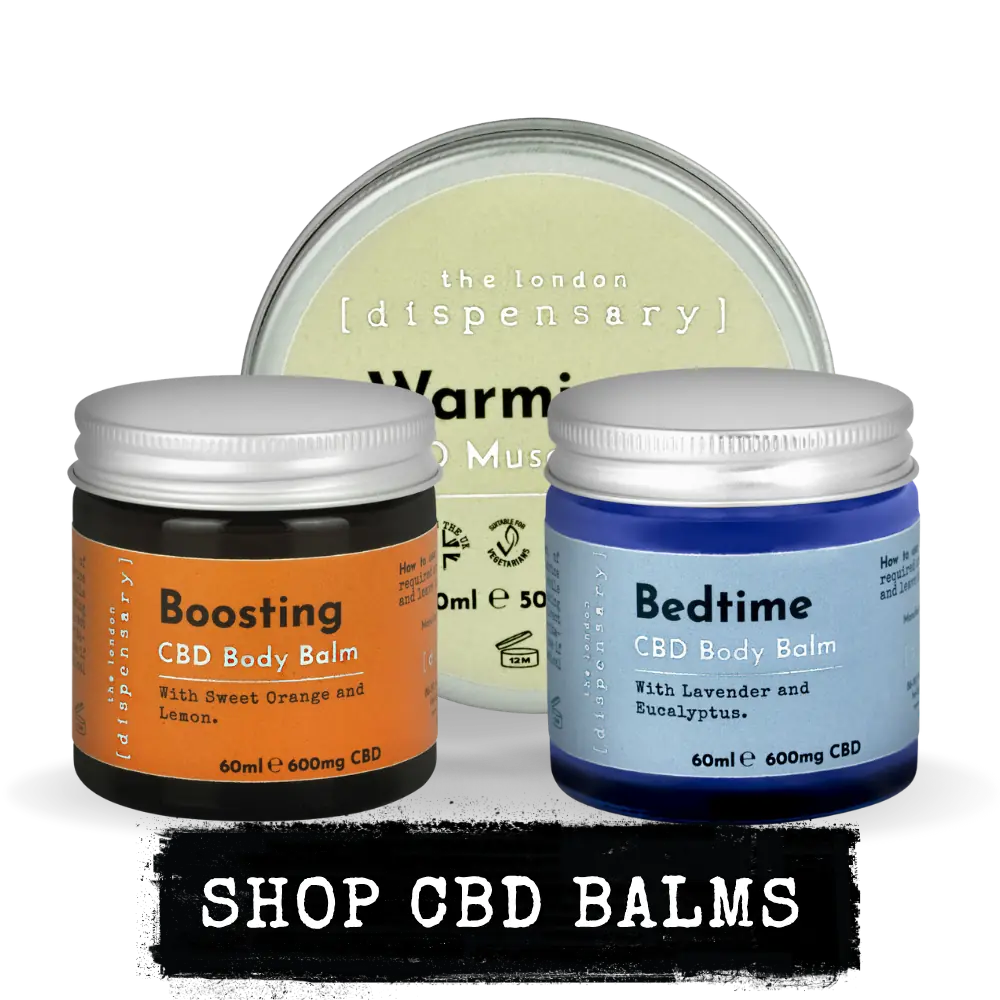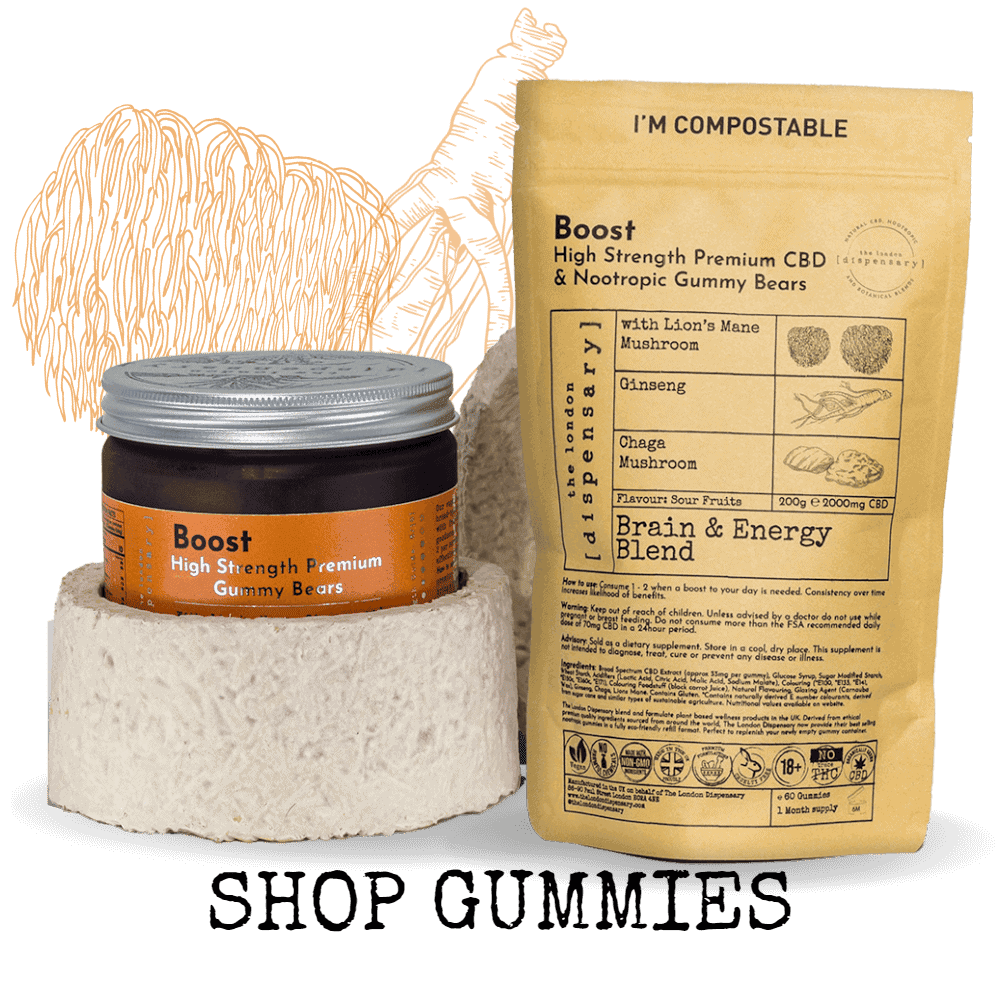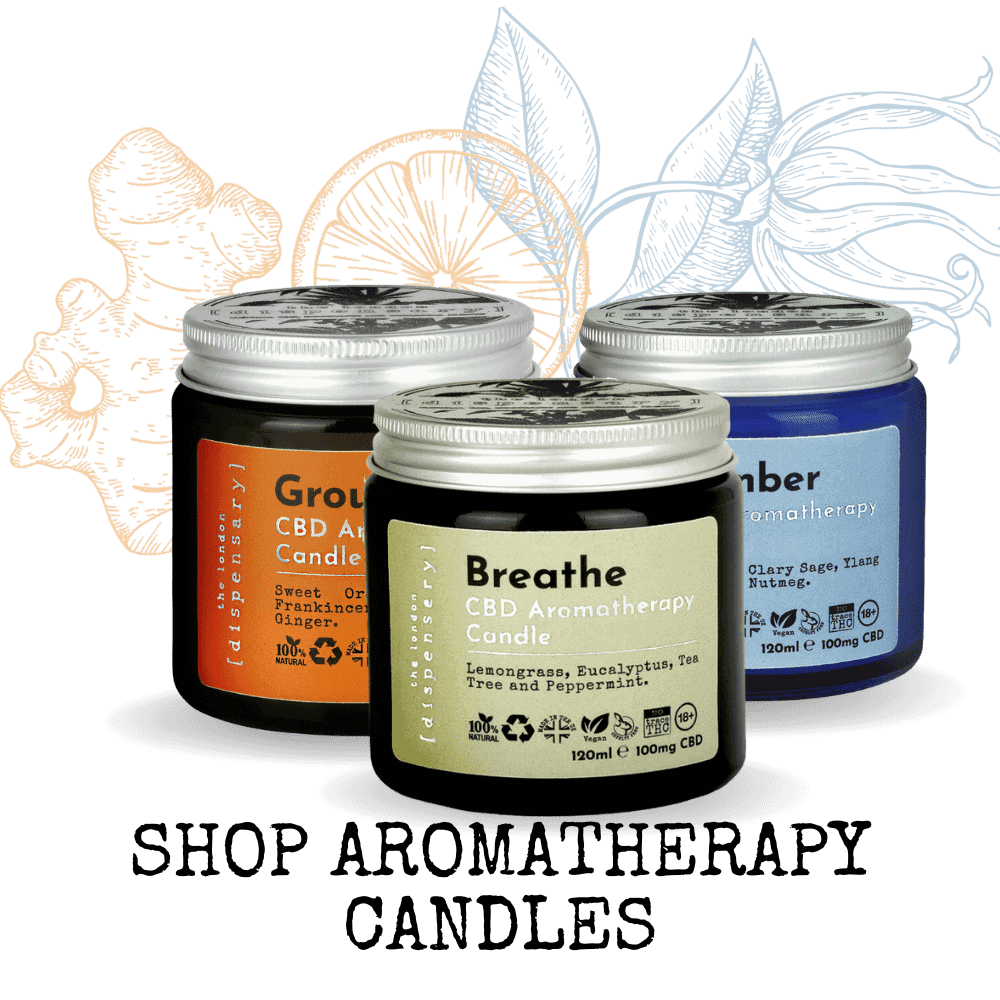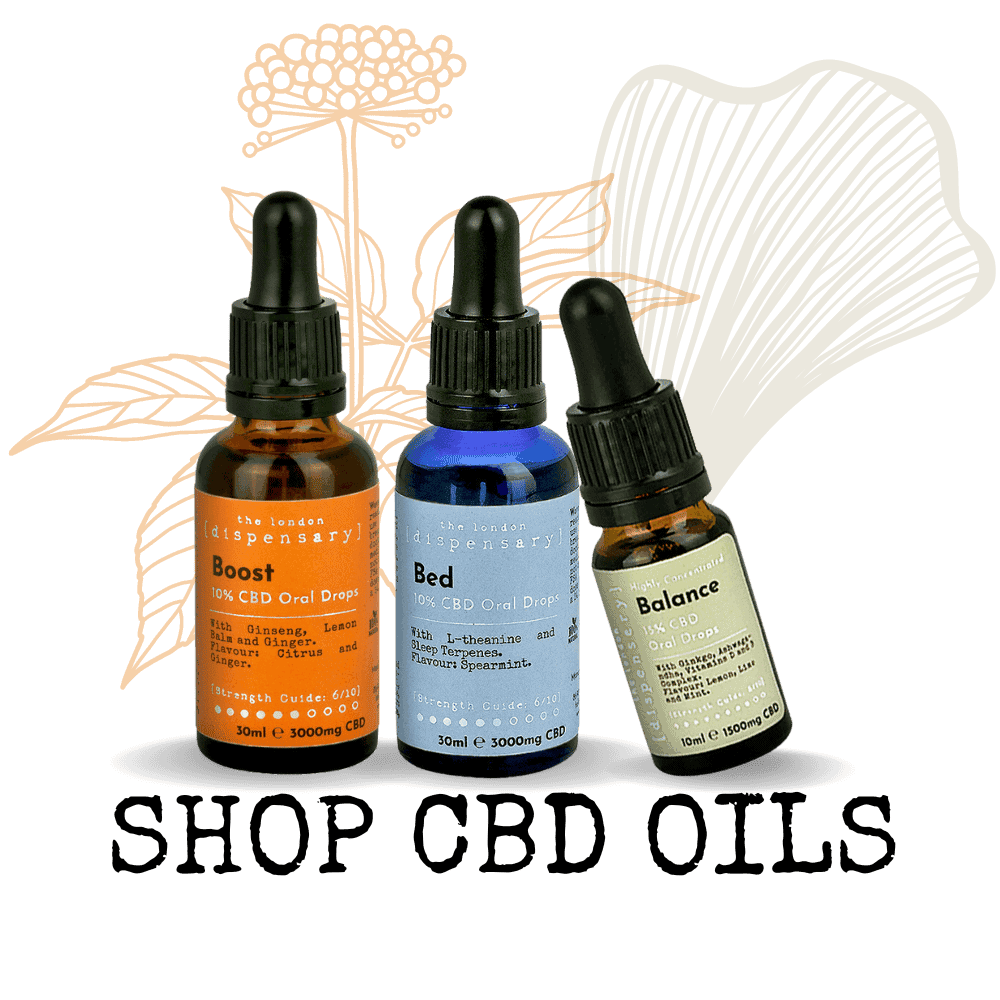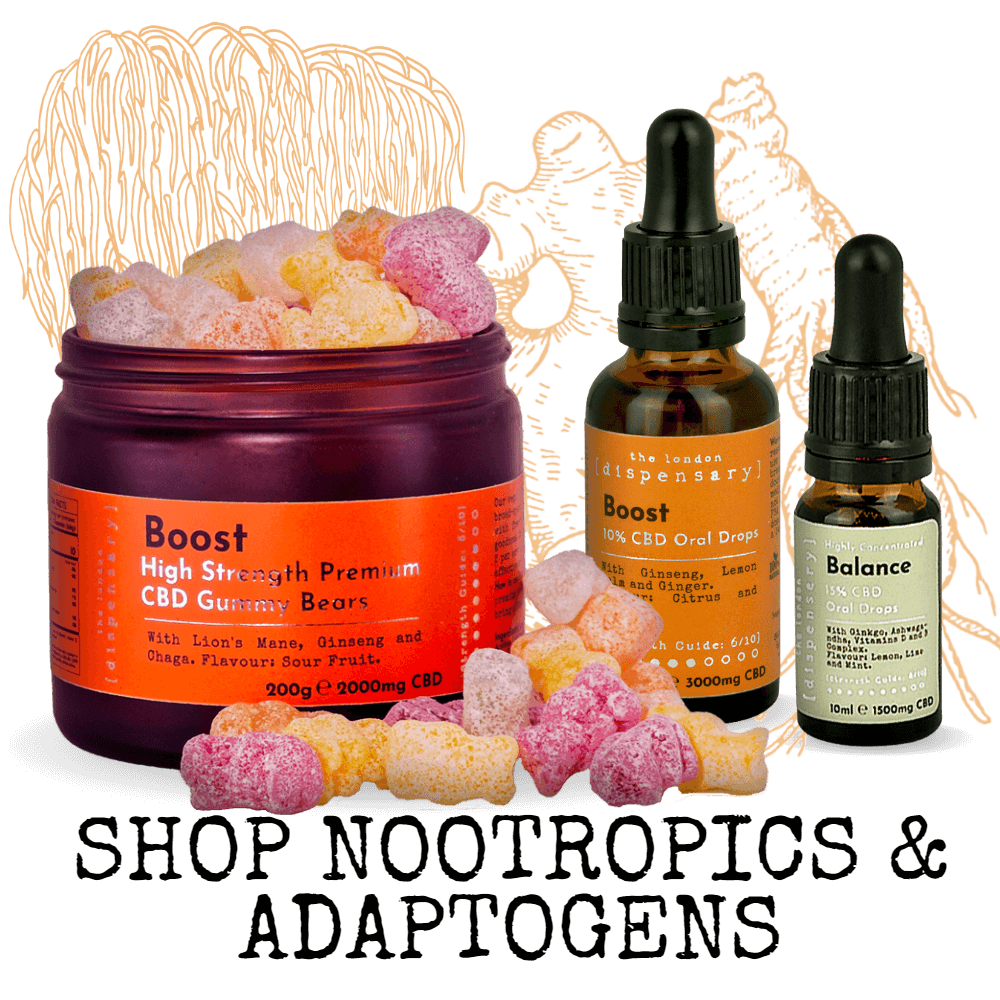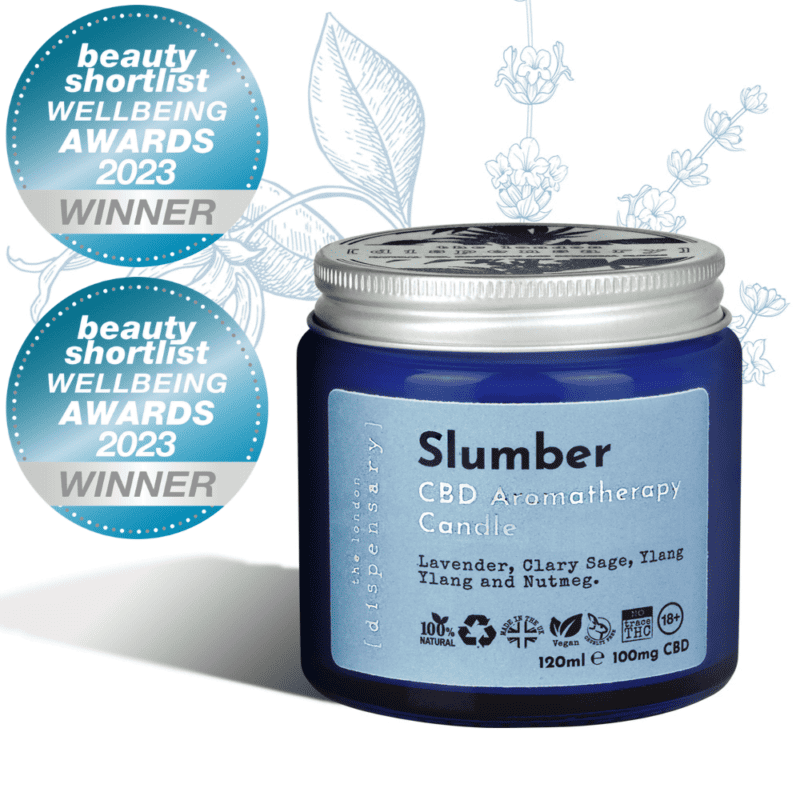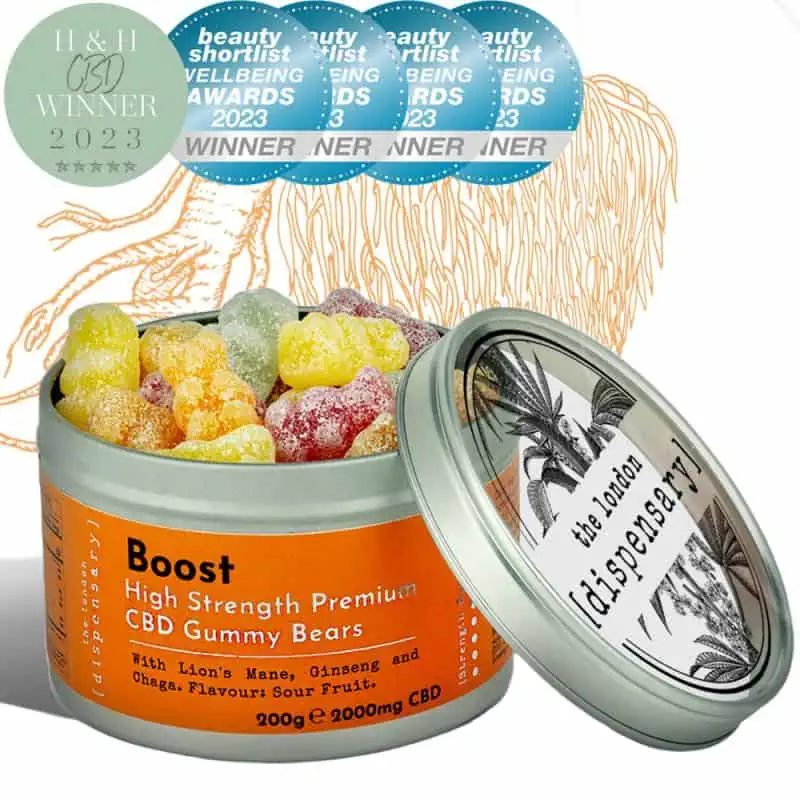CBD topicals sound like something between a mix of tropical-themed products and some late-night topical comedy quiz shows. But I was very mistaken. CBD Topicals are in fact a category of products applied topically that are applied to the body’s surface, such as a CBD balm. Mainly applied to the skin, local to where the issue is most persistent. This enables absorption and the benefits to be found and felt where the topical has been applied. A CBD topical is a skin-applied product consisting of little to no water content but a high oil content that contains CBD, or cannabinol, for its full name.
CBD Topicals now come in a range of different types in the UK, from CBD balms, ointments, creams, facial skincare, and so many more!
So if you are currently researching how CBD can help you with muscle soreness, joint pain, or inflammation but do not yet want to cross over into the world of CBD oil, it seems a bit complex. Then stick with us while we dive into the world of CBD balms from a UK perspective
We will be exploring the key ingredients to look for, the benefits of using CBD balms, and other key things to look out for when hunting for your balm. Whether you’re new to CBD topicals or a seasoned CBD believer, this blog will hopefully help you make an informed decision or at least some new insights. Let’s explore the world of CBD balms and discover what to look for on the UK CBD market.
Exploring CBD Topicals: An Overview
Unlike CBD edibles or oils, which are consumed and readily available in the UK, CBD balms are applied to the skin, mainly the mucous membranes. Applying it directly to the target area gives localised benefits that can take other forms of CBD longer to feel. But the best thing about CBD topicals is that they can be used in conjunction with CBD oils or gummies, as they do not count towards your FSA recommended daily CBD allowance. Offering you the chance to have the best of both worlds safely.
We do not yet know everything about how CBD works, but we do have a lot of research and testimonials globally pointing to its ability to provide beneficial effects. But what we do now know is that we have an endocannabinoid system in each of our bodies and that it is linked to the central nervous system. As more and more research points to many modern-day medical issues stemming from stress, mentally and/or physically, it is now easy to see why some people get anxiety relief from CBD use, some get pain relief, and others get sleep support.
If so many issues and problems are linked to stress and can be prevented or managed through nervous system regulation, then it’s easier to see how CBD and the endocrine system play an important role. It is also easy to see why applying a CBD balm to a sore muscle or painful joint can provide relief.

DID YOU KNOW?
Surprisingly, maybe, but to be approved for use, we do not need to know how something does something, even medically prescribed or controlled drugs; there just needs to be proof that the benefit of using it outweighs not using it generally for most of the population. We are still learning how anaesthetics actually work. For almost 100 years, it has remained a mystery, but it has been used on many millions of patients routinely.
Understanding CBD Balms: What Are They?
If CBD topicals are a main category, then CBD balms are a sub-category or child category within the whole expansive CBD products world now on offer in the UK.
What is the difference between a balm, cream, CBD ointment, and CBD lotions?
Balms are generally a blend of butter and oils, and unlike cream, they are solid at room temperature. But a well-formulated balm will generally melt on touch. This allows it to be easily applied to the skin. Balms, as we know the term today, were the general name given to topicals applied to give a protective barrier to the skin, to allow it to heal, for example. Today, balms, ointments, creams, and lotions are generally determined by the ratio of ingredients, or more accurately, the ratio of oil to water.
Balms, for example, contain more butter and oils and little, if any, water content. Whereas lotion or gel on the flip side contains far more water and a lot less oil and can often contain alcohol. This is important because balm gets absorbed by the skin slowly, producing a longer moisturising and beneficial effect than a cream or lotion, which is created to absorb quickly. So balms are superior at producing a longer-lasting effect. Which is very helpful when your balm contains CBD, as it will give a steady elongated effect, which will help the area that’s feeling the pain or dealing with inflammation for a length of time.
So think of it as cream is quicker to get to work but lasts longer; balm is slower but lasts longer. Easy!

DID YOU KNOW?
Incredibly, according to an article in the National Post, balms appear to date back all the way to 40 B.C., as we have Cleopatra to thank for the lip balm. Made from beeswax, animal fats, and olive oil. With the goat milk baths and the creation of the lip balm, you could probably safely conclude that if alive today, Cleopatra would likely live in Beverly Hills, and her lavish lifestyle would be the talk of Instagram!
The Rise of CBD Balm in the UK

Interestingly, maybe only for me, but apart from a historic link between medicinal qualities, I couldn’t find a link between balms and the use of balm in reference to parts of the mint family referred to as balm, e.g., lemon balm. The more recent use of balm as a definition of providing a protective shield or quality to something. A modern replacement would be ‘barrier’.
I finally concluded that there surely is a link between them, but it is not documented online in an easy-to-find place, as during the embalming process, thanks to their fragrant qualities, they would use the ‘balm’ named herbs either for the protective qualities or the strong aroma masking properties while they carried out the embalming, maybe? Citrus has historically been used in cleaning due to its ability to cut through smells, and mint has been used to ward off rodents. Maybe this is an answer that is lost to history at this point.
Right, back to CBD topicals!
Balms in the UK have witnessed a significant resurgence and, with it, increased demand. CBD balm has become a real staple product for many, largely thanks to its potential benefits for pain relief and skin conditions. As many hunt for natural, non-chemical options for managing pain, CBD balm has been a natural progression for many on their journey of discovery. We have had some customers who have religiously purchased their favourite CBD balm for years at this point. As they speak about the help it has been to them and the management of their various conditions,
Why choose a CBD balm?
CBD balms not only nourish the skin but also provide a projective moisture lock barrier for it, which keeps the area hydrated. It also works along the endocannabinoid system to provide localised topical relief for many that have used them. Due to the anti-inflammatory properties that CBD has been linked to, this is one of its benefits.
Being a blend of natural ingredients with the aroma derived from essential oils means many experience relief in a completely natural way. Without the need for harsh chemical alternatives. There is also a good selection of vegan CBD balms available on the market that use all plant-based products without the more traditional use of beeswax or animal fats.
Potential Benefits of Using CBD Balm in the UK
Just like CBD has been, CBD balms and other topicals have been linked to many potential benefits. We explore some below:
UK CBD Balm for Pain Relief
Many suffering from various muscular or skeleton-based pains have tried CBD, and a proportion have tried CBD balms for support. There is published evidence regarding the effectiveness of CBD in pain relief, but like any compound medicine, not everyone is different, so what works for some might not work for another.
However, a 2023 study published in the Cannabis Research Journal looked at the application of topical CBD and its effectiveness. It reported a “significant improvement in self-reported pain levels” within the control group of elite athletes suffering from pain in the lower part of their bodies. This is one of the first published studies regarding the use of topically administered CBD for pain.
Skin Care and Conditions
Natural balms are a fantastic way to hydrate and promote healthy skin by delivering essential fatty acids and vitamin E. CBD balms could provide relief for skin conditions like dermatitis and psoriasis. Natural CBD balms containing pure, natural ingredients such as butter and oils are excellent as they nourish and moisturise dry skin, while common favourites such as shea butter and coconut oil in the balm soothe and hydrate the skin. The topical application of CBD balm has been lauded by the American Academy of Dermatology for its potential benefits in skin care.
In an article published by the National Eczema Association of America, Dr. Peter Lio, a dermatologist speaking on the subject of CBD topicals, states:
“I think topical CBD is a very promising treatment for eczema; in theory, it could decrease itch, pain, and inflammation. In the correct vehicle, it could also help heal the skin barrier,” said Peter Lio, MD, who is a clinical assistant professor of dermatology and paediatrics at Northwestern University’s Feinberg School of Medicine and the founding director of the Chicago Integrative Eczema Centre.
Other Notable CBD Skin Balm Benefits
Being derived from hemp, CBD balm is rich in unsaturated fats such as linoleic acid, γ-linolenic acid, and α-linolenic acid. These three very beneficial fatty acids are said to improve skin structure by helping the skin retain moisture. So, keeping with the theme of locking in moisture,.
How to Properly Apply CBD Balm
Applying CBD balm, like any balm you might apply in the UK in cold weather, is best done by gently rubbing the balm top in a circular motion to melt the natural butter and oil blend before applying it to the target area. Which is best done when the area is dry and does not have any unbroken skin. Gently apply the balm and leave it to absorb. It is best to wait a little while to dress if it is in a location that will be rubbed off easily. Obviously, if it’s a lip balm, apply it in a similar way, but to the lips, to help lock in moisture.
Dosage and Tips
As mentioned earlier in the article, CBD topicals do not count towards your daily allowance of ingested CBD set by the FSA. So you can use a topical and CBD gummies or oil alongside it for enhanced effectiveness. If you are using natural ingredients or CBD balm for the first time, patch testing on a small area of skin before wider use is advisable, just in case of any reactions to new ingredients your skin might not be used to. Also, before using it to treat any skin conditions, please consult a medical professional for advice before you do.
What to Expect After the Application
CBD balm, as compared to a CBD cream, takes longer to absorb due to the higher oil content found in it. So instant relief isn’t realistic, but gradually, over a few hours, most people will feel if it has been effective for them or not. But remember, CBD is a personal effect, so some people react differently to others using the same product. But it is advised to stick with it for at least a week before concluding your verdict. Some CBD muscle balms come with a gentle natural cooling effect that is beneficial for those tired gym muscles to experience the cooling sensation.
UK CBD Topicals: What to Look for in a CBD Balm?
With so many CBD balms on offer in the UK, how can you tell which one is better than the others? Here are some quick tips to cut through all of the white noise:
 CBD Balm: Brand and perception
CBD Balm: Brand and perception
Well, first, look at the brand. How does it feel for you? Is it well polished, something unique someone has taken time to develop, or is it just another quick remake of something you have seen before? A band that is in it for the long haul takes time to develop an identity, unlike the competition. A brand that is in the market to make a fast profit will seem boring, ordinary, and unmemorable.
How is their overall standing? Have they been in publications? What is their online presence? Have they won awards? Remember that there are still large amounts of restrictions on the CBD industry, so they are going to be less present online and socially than you might normally expect.
CBD Balm: Independent lab testing
Do the brands use independent, ISO-accredited labs to actively test their products? Are the findings being made available to consumers online so they can easily view and download them for a more in-depth look? If customers intend to travel with their CBD balm, this is also important information to have with the product.
CBD Balm: Ingredients and Sourcing
Are the ingredients natural? Or do their balms contain chemicals? Which is fine as long as you are clear on what it is you want and what you are going to get. Do they have ethical, fair, and sustainable sourcing practices in place? Do they even know what these are and what they look like? Where are they getting their ingredients from? What additional ingredients are in the balm?
CBD Balm: Customer reviews and feedback
Customer reviews are important factors in your decision-making process. But customer reviews are hard at the best of times, and when they are also for a product, some people consciously or subconsciously still associate it in some way with cannabis (which it isn’t), which makes it even harder to get those reviews from customers. Trust us, we know! But that does mean when you see them, someone has really gone out of their way to leave a positive experience about a product.
Look for trust symbols and badges as well to check for verified reviews and that they are verified by a third party. On external review sites, trust your gut. Sadly, most business owners will have a daily inbox full of emails offering cheap reviews on all of these external sites and so much more. You can normally tell the fake ones pretty easily. Not that many people leave a review on Trustpilot for the first time as an example. Less reviews that are clearly verified and real are clearly far better than a business obviously purchasing fake reviews.
CBD Balm: Potency or Volume of CBD in the Balm
CBD balm comes in a variety of strengths, and this is measured in mg of CBD, which is 1/10 of a gramme. There is such a thing as too much. When a product has so much CBD, for example, it is hard for the body barrier to absorb it. But we go by the formula of 10mg per 10 ml of product, at least. We measure our balm in mL as a liquid because when it is poured into its glass containers, it is a liquid, prior to being left to cool to a solid at room temperature. This felt logical to us, so we continue to measure this way. But some prefer a gramme measure.
The type of CBD in topicals is generally an isolate because of its pure CBD quality and because it has had all plant elements removed, which can contaminate natural topical products that lack a chemical preservative.
Precautions and Side Effects of UK CBD Balms
We have mentioned a few already, but things to be aware of when using any new cosmetic or topically applied product are:
- Check the active ingredient list for any known allergies you have to any of them.
- Patch test on a small area and wait at least 24 hours before using it more widely. This ensures any new ingredients you haven’t had previous exposure to are applied in a small, controlled area to check for any reactions.
- If you are looking to use a CBD balm for eczema or dermatitis, for example, you should consult with your GP or dermatologist first.
- Remember that essential oils such as tea tree oil and peppermint oil can contain irritants, so check those out before hand.
- If any localised reactions do occur while using a nonprescription CBD product, discontinue use and monitor. If it gets uncomfortable or the problem areas create anxiety for you, seek the advice of a medical professional. They know what to do, as all cosmetic products are registered in a large database they can use to look for further assistance.
- Lastly, stay on the right side of the law and select a trusted brand that you can be sure creates CBD products that contain no more than 1 mg of THC per product; this is the legal limit in the UK.
Possible Side Effects of CBD Balms
Like with all topical products, not just topical CBD products, the main side effect is highly localised skin irritation, which can affect individuals with sensitive skin more than those without. That is why we continuously suggest patch testing prior to further use, ideally on the inside of your wrist, as a good idea. This lowers the chance of adverse effects being unmanageable if seen at all. Irritation can be in the form of redness or dryness, but it usually goes away when the application is stopped and the patch test site quickly heals.
Conclusion
In conclusion, the potential benefits of CBD topicals—especially CBD balms—in pain management and skincare have made them increasingly popular. Their approach to treating various ailments and enhancing general well-being is natural and convenient. It is important to take care while selecting CBD balms, taking into account factors like ingredient sourcing, independent lab testing, and brand impression.
There are studies emerging to show how CBD balms in some select groups, when applied topically, can help with pain management, for example, and noted dermatologists are supporting the use of CBD tropically for some skin complaints. It is also worth noting that the World Health Organisation’s view on CBD is as follows:
it is considered to have many health benefits and is used to treat many health difficulties, including stress, sleep difficulties, anxiety, other mental health difficulties, and chronic pain.
Always use the suggested application approaches and be mindful of any potential negative effects. CBD balms can be safely used on a regular basis; however, it’s best to speak with a
medical professional if you suffer from any skin conditions, if you are pregnant, breastfeeding, or taking any daily medications to be on the safe side from any interactions.
So now armed with all of the information you need to be an informed and conscious consumer of UK CBD balms, allow me to suggest a multi-award-winning CBD brand that is just one click away from you with four beautifully natural CBD balms for different occasions and covering all needs! The London Dispensary’s beautifully blended range of soothing, nourishing, and protective CBD balms is all created here in the UK! Go on, take a look!
Is CBD balm any good?
Topical CBD products have potential benefits for those who suffer from inflammation and pain. CBD balm has shown positive early results in studies and has the backing of a number of dermatologists for aiding common skin conditions. As many CBD balms are natural, there is a relatively low risk of side effects.
Why CBD lip balm?
CBD lip balms are generally made from natural butter and oils, which have the benefit of providing hydrating, soothing, and moisturising properties. Being a balm, it is designed by nature to lock in moisture, making it perfect for colder weather. The CBD adds an additional soothing property to the CBD lip balm.

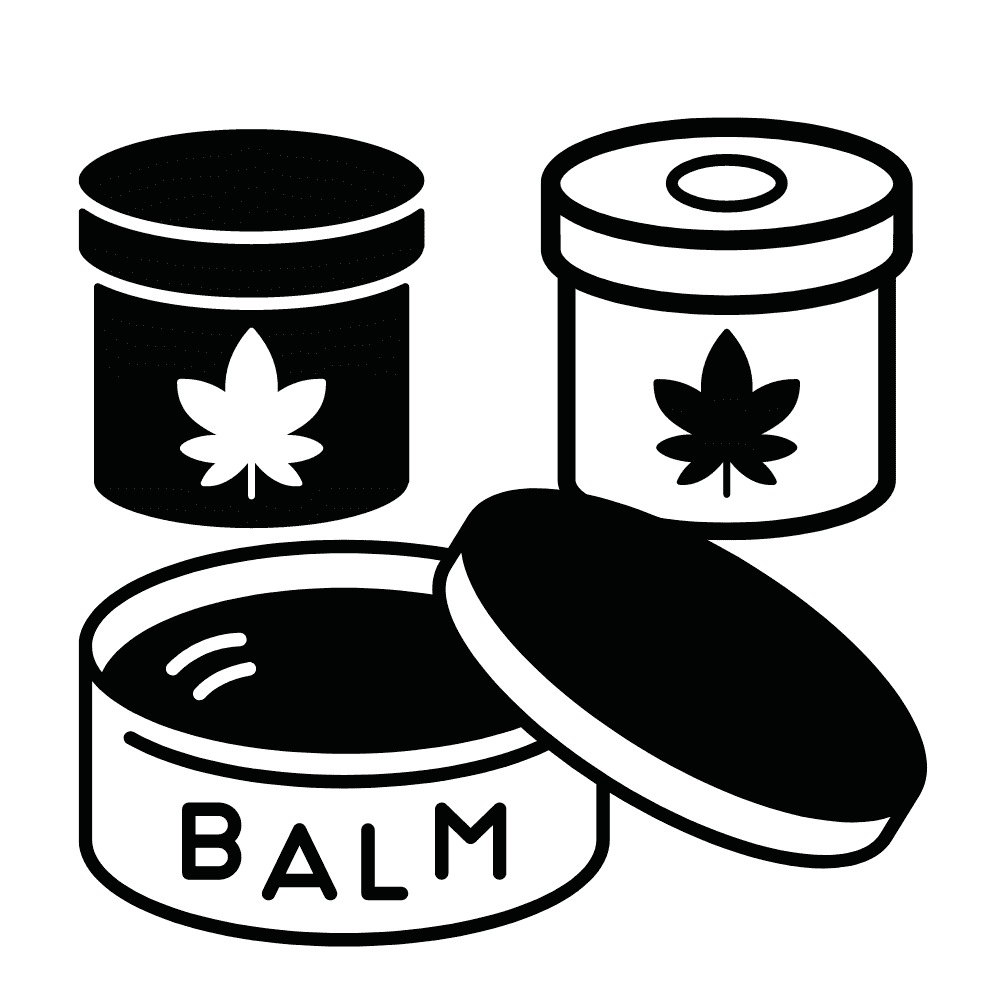
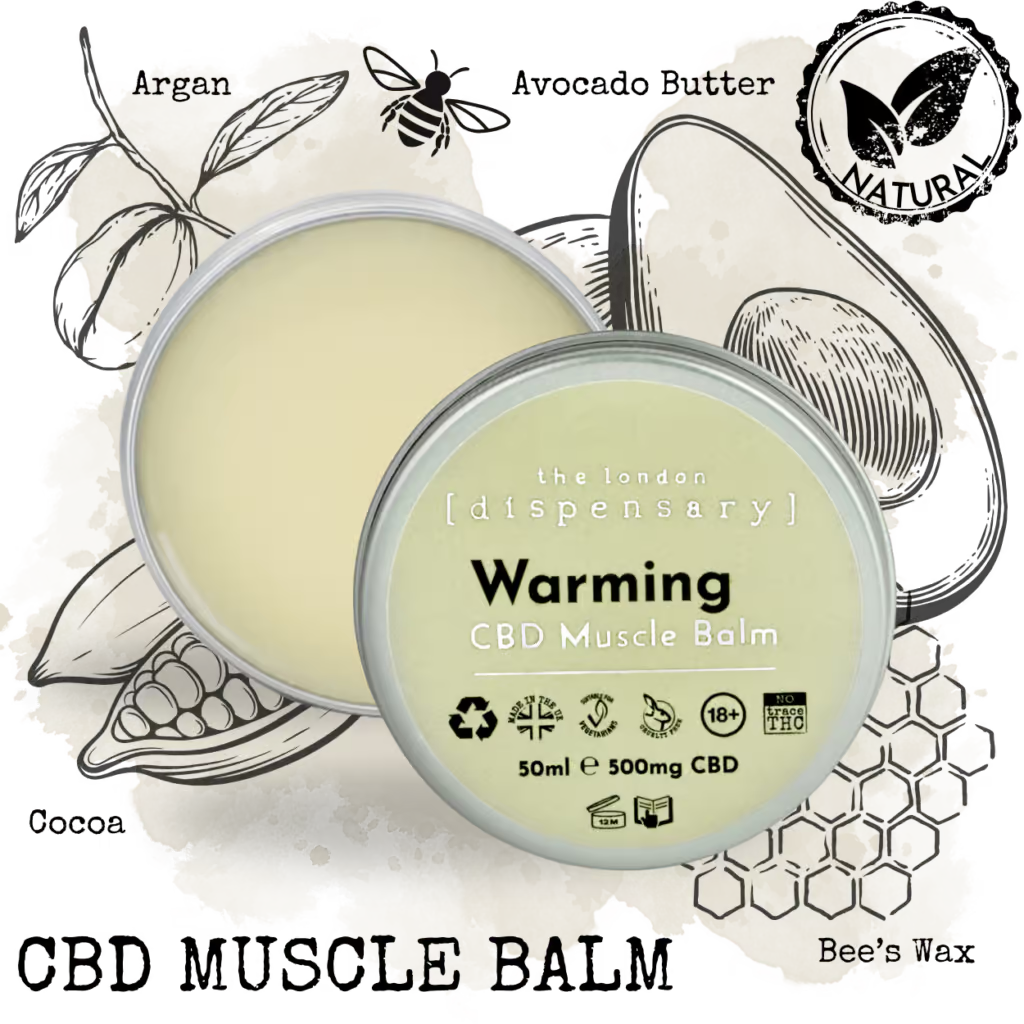
 CBD Balm: Brand and perception
CBD Balm: Brand and perception


